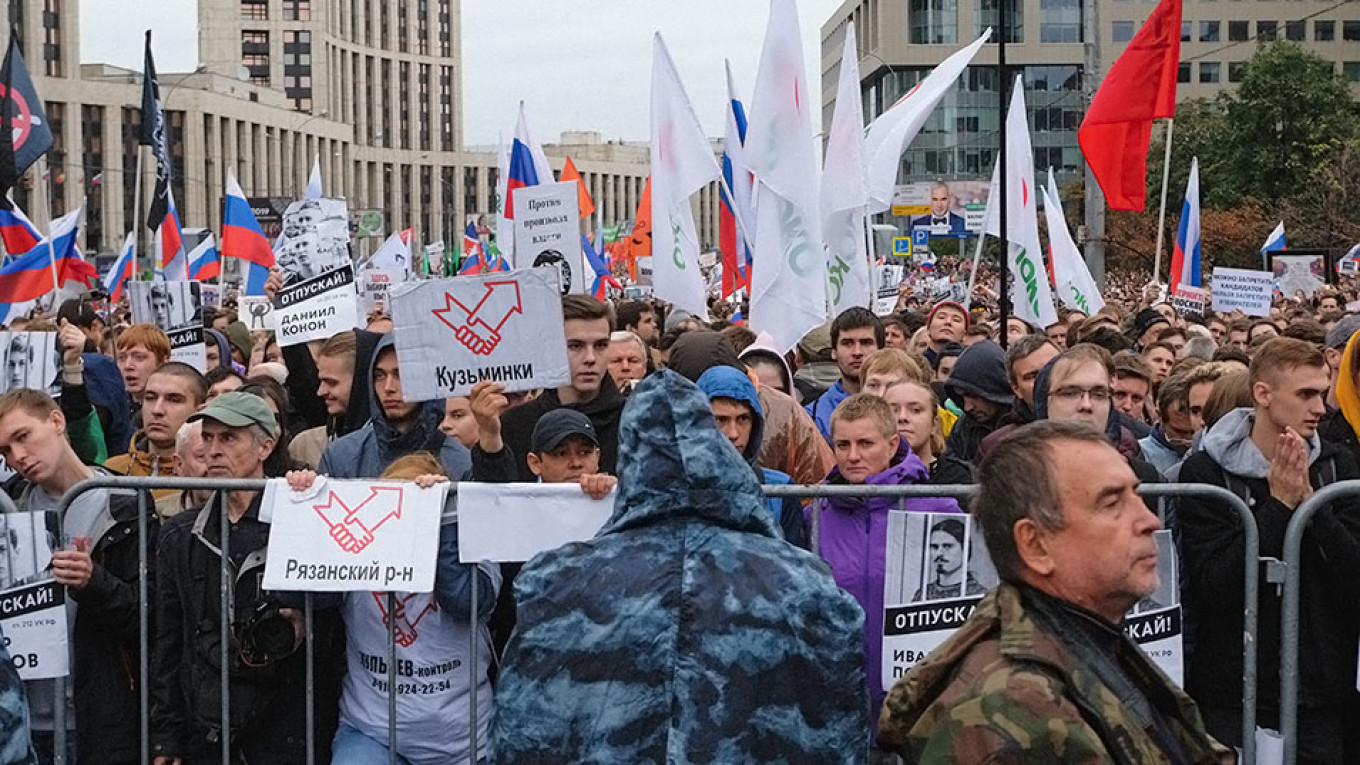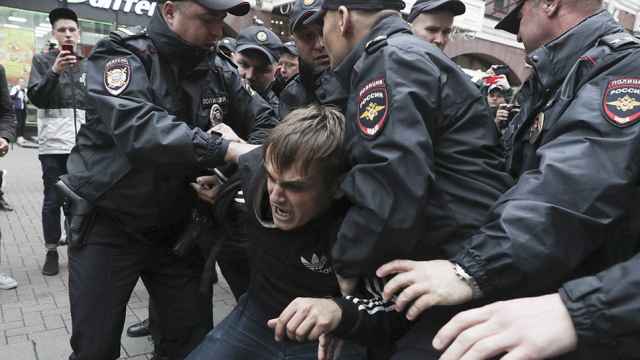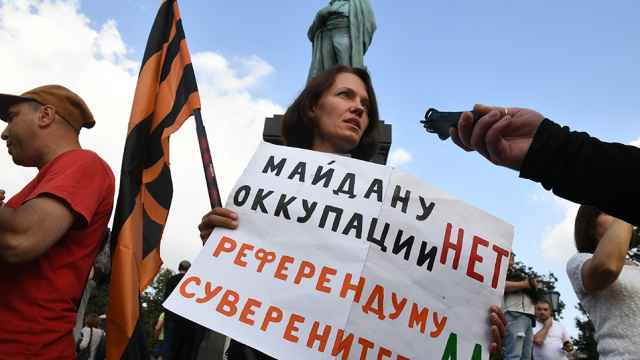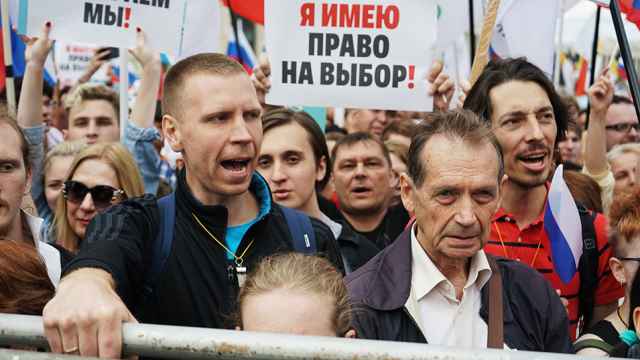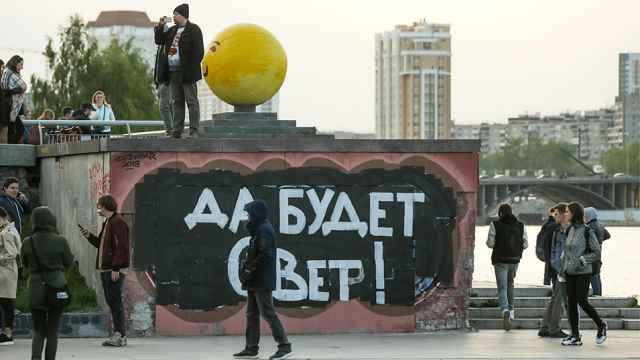The estimated 50,000 people who braved Moscow’s rainy weather on Saturday to support opposition politicians barred from a local election and protesters arrested on charges of “mass unrest” last month were largely young adults who see themselves as ordinary people, a survey has said.
Russian state television has branded participants of the latest authorized gathering as “bums, gypsies and outsiders.” A survey of every seventh participant, or a total of 306 people, at the security gates on Saturday aimed to “dispel persistent myths” surrounding the typical protester in this summer’s opposition rallies.
Half of the respondents who attended Saturday’s protest said they were younger than 33, according to the survey. Eighty percent of respondents said that they permanently reside in Moscow, while another 17% said they live in the Moscow region.
“These figures show that these aren’t ‘intruders’ or school kids,” the authors, political scientist Alexei Zakharov and anthropologist Alexandra Arkhipova, wrote in Russia’s Vedomosti business daily Sunday.
A majority, or 54%, of respondents said they perceived themselves as “ordinary people,” while 36% of respondents said “there are few people like me.”
“Most participants don’t think of themselves as freaks or black sheep,” the authors wrote.
Described as one of Russia’s largest protests in eight years, the two-hour authorized event was followed by more than 200 detentions near the presidential administration building in central Moscow. Throughout this summer, Moscow police have detained more than 2,500 people, sometimes violently, at unauthorized rallies protesting the candidates' exclusion.
More than three-quarters of respondents Saturday said they would “definitely” take to the streets again with similar demands. A majority (55%) said it was important that the authorities issue permits for the next rally, while 43% said it didn’t matter.
These figures show that the authorities' efforts to prevent unauthorized protests by exerting heavy police crackdown are “limited” in their effectiveness, the survey’s authors wrote.
A Message from The Moscow Times:
Dear readers,
We are facing unprecedented challenges. Russia's Prosecutor General's Office has designated The Moscow Times as an "undesirable" organization, criminalizing our work and putting our staff at risk of prosecution. This follows our earlier unjust labeling as a "foreign agent."
These actions are direct attempts to silence independent journalism in Russia. The authorities claim our work "discredits the decisions of the Russian leadership." We see things differently: we strive to provide accurate, unbiased reporting on Russia.
We, the journalists of The Moscow Times, refuse to be silenced. But to continue our work, we need your help.
Your support, no matter how small, makes a world of difference. If you can, please support us monthly starting from just $2. It's quick to set up, and every contribution makes a significant impact.
By supporting The Moscow Times, you're defending open, independent journalism in the face of repression. Thank you for standing with us.
Remind me later.



